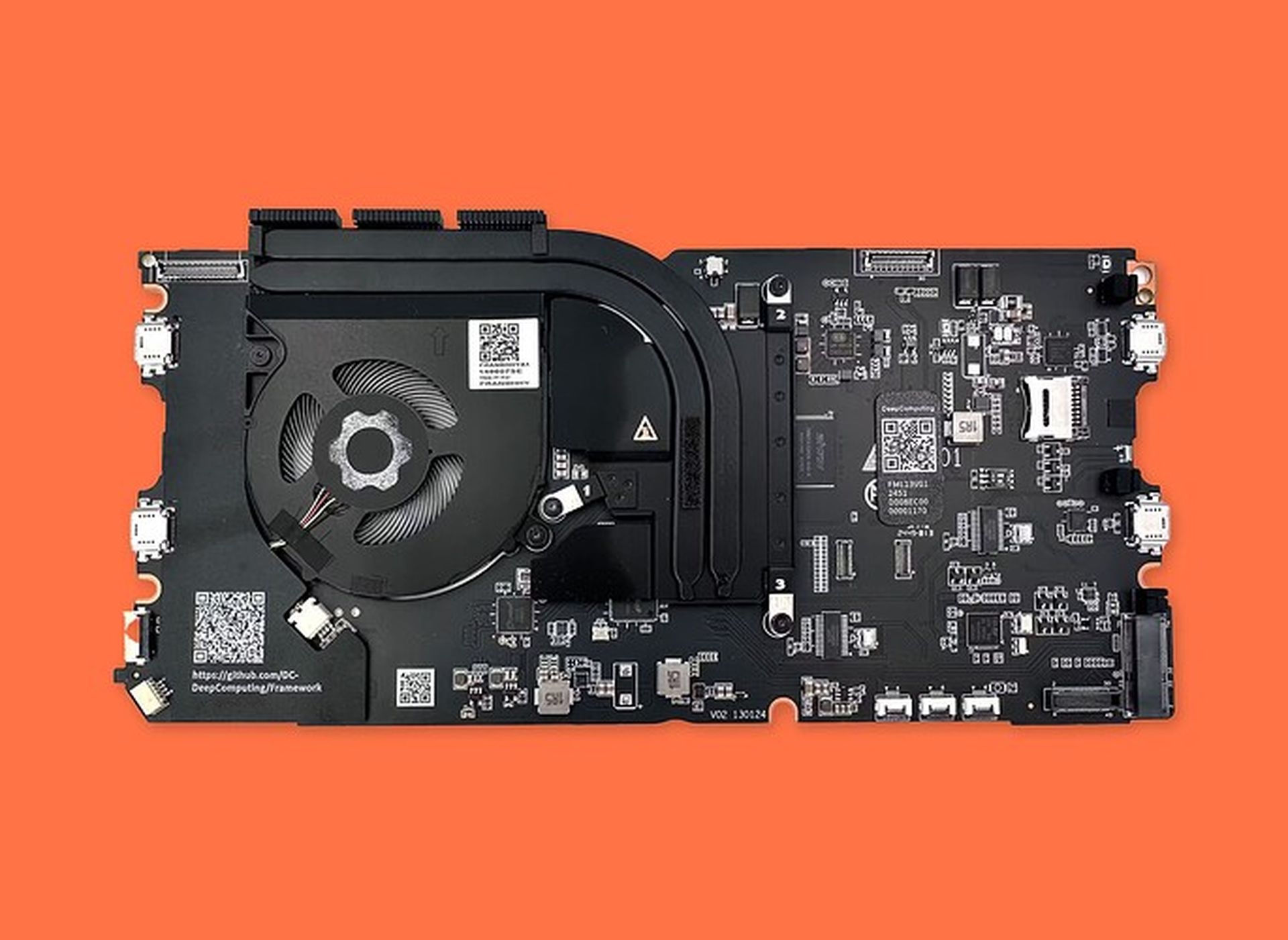Challenger laptop brand says you can shove 26TB of superfast SSD storage in its laptop - and I now know how
Updated: Combine four SSDs drives to hit the largest storage capacity I've seen on a laptop

- Framework Laptop 16 dual M.2 adapters combine four drives for massive capacity
- PCIe Gen4 ensures faster data access and seamless multitasking
- Swappable components allow easy upgrades and extended usability
Framework has announced its Laptop 16 device is now able to install up to 26TB of superfast Gen4 SSD storage. In a statement to TechRadar Pro, the company comfirmed that the laptop is using "two 8TB in the Dual M.2 adapter, another 8TB as the primary storage in the system, and 2TB as the secondary storage in the system." All of them Gen4 type.
This boost in capacity is achieved by using a dual M.2 SSD adapter alongside high-capacity 8TB WD_BLACK SN850X drives, allowing users to combine four drives (two pairs connected via dual adapters) to reach the maximum storage capacity.
Framework’s modular laptop design philosophy allows users to easily swap components like mainboards, memory modules, and even entire shells when needed - helping to extend device lifespans, reduce waste, and promote sustainability through easier repairs.
Expanding storage possibilities
Framework's flexibility here also takes advantage of PCIe Gen4 technology for faster data access and transfer.
Modular design also fosters an open source community where developers contribute new module designs and software solutions. According to Framework, the Laptop 16's open source Graphics Module Shell has inspired new module developments, such as an e-paper display Input Module.
Expanding its commitment to open hardware, Framework also launched the DeepComputing DC-ROMA RISC-V Mainboard for the Framework Laptop 13.
Powered by the StarFive JH7110 processor and based on the open-source RISC-V ISA, this board is designed primarily for developers looking to accelerate the RISC-V software ecosystem.
Are you a pro? Subscribe to our newsletter
Sign up to the TechRadar Pro newsletter to get all the top news, opinion, features and guidance your business needs to succeed!
You may also like
- These are the best budget laptops available
- We've also listed the best business laptops right now
- How can businesses drive value and innovation with trusted AI?

Efosa has been writing about technology for over 7 years, initially driven by curiosity but now fueled by a strong passion for the field. He holds both a Master's and a PhD in sciences, which provided him with a solid foundation in analytical thinking. Efosa developed a keen interest in technology policy, specifically exploring the intersection of privacy, security, and politics. His research delves into how technological advancements influence regulatory frameworks and societal norms, particularly concerning data protection and cybersecurity. Upon joining TechRadar Pro, in addition to privacy and technology policy, he is also focused on B2B security products. Efosa can be contacted at this email: udinmwenefosa@gmail.com
You must confirm your public display name before commenting
Please logout and then login again, you will then be prompted to enter your display name.